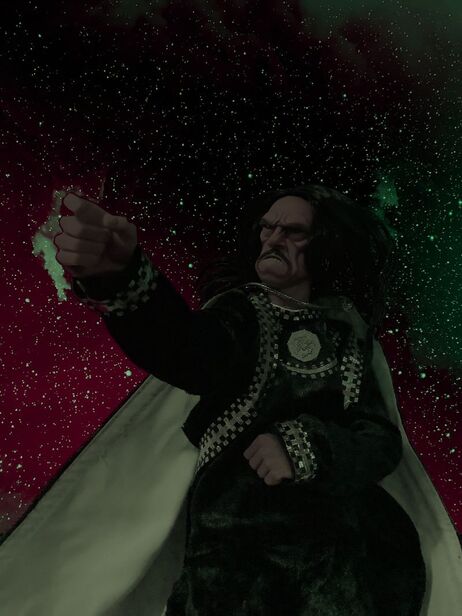|
Cumbia Therapy is an intergenerational story told in three distinct sections, each exploring intimate relationships and la maldición put on four generations of women and meant to undo those relationships. Part I, Alzira, tells the story of Elena, a Mexican-American woman in her early twenties, and her Brazilian girlfriend, Alzira, as they meet in Italy, travel through Spain and Morocco and live for a time in Seattle in the mid-1990s. Part II, The Curse, explains the origins of la maldición, starting with Adela in revolutionary México and continuing in New Mexico. Part III, El Camino, explores how each generation of women questions the validity of the curse and deals with it in her own way. Cumbia Therapy has received an Illinois Art Council Fellowship. “Better a Bridesmaid” is an excerpt. “Better a bridesmaid” When Tío Freddy finally married Natalia, my sister Sofía and I had to be bridesmaids. We’d never been in a wedding and, as I had no interest in them generally and didn’t want to have one personally, I was not looking forward to all the hype. It didn’t help that Cristina, Natalia’s best friend and maid of honor, wasn’t thrilled about our inclusion and wanted to argue over every chingadita, including the scriptures Natalia had chosen for us to read at the cathedral. Cristina barked at me, “El pasaje tuyo is longer and more dramatic.” “Has leído El Anarchist Cookbook?” I asked. “If you want dramático, maybe slip in a paragraph or two from that.” She moved on to the dresses. “Este no me queda bien. These dresses aren’t suited for a mature figure.” Sofía said, “Ay, por favor. You’re just jealous because our figures are fifteen years younger.” Cristina stopped speaking to her and that meant she wouldn’t stop chatting me up. In truth, I hated the teal taffeta dresses and thought they suited Cristina much better. With the exception of a few hours on Sunday that included Mass, she wore miniskirts and midriffs everywhere and, after getting her chichis done, she liked showing off her cleavage—which the dress definitely did. By the second fitting I was tired of looking at dresses and hearing about Cristina’s date for the boda: a paleta man from Potosí. So, I decided to convince her to let me feel her chichis. The fitting area of Betty’s Bodas was crowded and stuffy and I whispered to her that we should step outside for some air. Then I slid around the corner, to the quieter side street, and as innocently as possible, said, “All this looking at women in dresses made me curious about your operation, Cristina. And I was wondering if I can touch them.” She stared at me a moment. “If you give me one good reason for wanting to, I’ll let you.” “I’ll give you two. First, I’ve never felt chichis other than my own. Second, I’ve never seen falsas.” “They’re not falsas,” she sniffed. “They just needed a little lift.” “Why not just get a good bra?” “You’ll understand someday.” I doubted it, but when she straightened her back and said, “Ándale,” I reached out and touched them. They felt like plastic baggies filled with Jell-o. Cristina lifted her shirt and bra and quickly showed me the scars. “¿Qué piensas?” she asked. “Pues...in my humble chichi opinion, the scars look painful, pero las chicas look nice and lifted.” The day of the gran ceremonia toda la familia met at mi abuelita’s to pick up boutonnieres and corsages. Mi Tía Gisela had a summer cold, but she didn’t let it stop her from walking around snapping fotos of everyone. Her fotos always came out blurry, off centered and with our heads chopped off, so no one bothered to pose. Abuelita was following Freddy around the house trying to convince him “to groom himself.” His reddish-brown hair fell to his shoulders in waves and he brushed it frequently and was careful about what he put in it. Women loved it, pero abuelita thought it made him look uncouth and insisted he tie it back, at least for Mass. “Do it for me, hijo,” she pleaded as he went from room to room, inspecting himself in every mirror. “Pero, mami, Natalia won’t recognize me.” “Then, por lo menos, shave your face. Natalia should see what you really look like.” “Oh, she’s seen me...” “No quiero saber, Freddy. Listen to me, please. You’ll thank me years from now.” We were just about out of time when abuelita and Freddy went into the blue baño and closed the door. When he emerged with his hair in a ponytail, without his mustache and forked-beard, we couldn’t believe it. Abuelita beamed and Freddy walked out of the house like a chamaquito forced to attend his big brother’s wedding. We got to the church and smashed into the back room where everyone congratulated each other on how lovely they looked. Cristina was wearing a pair of aqua-colored contacts that matched her dress. Abuelita took one look at those eyes and said, “¡Ay, Cristina, qué susto!” When the first few notes from the organ flooded the cathedral, I joked, “No turning back now,” and Natalia burst into tears. Sofía and I shared a we’ll laugh about this later look, then we grabbed our partners—Natalia’s cousins, shy as feral cats—and we headed up the aisle. After taking our places in the pews, we watched Natalia in her weeping moment of glory. When she got close enough to see Freddy’s face, she did a double take and Tía Gisela’s flash went off. As soon as everyone settled into the hard creaky benches, the priest began the old New Mexican tradition of roping the novios together with a large wooden rosary that resembled a lasso. I whispered to Sofía, “Ya vez, that’s what marriage is.” When the novios knelt, we saw someone had taken Kiwi’s white shoe polish to the bottom of Freddy’s shiny rental shoes. The left said Help and the right said Me. While the congregation attempted to stifle their laughter, Gisela started a stream of squeaky sneezes. Her gringo-date kept passing her tissues as if they were love notes, not snot catchers. The novios got to their feet and the sin vergüenza Cristina began motioning for Natalia to look at the bottom of Freddy’s shoes. Instead, Natalia snuck a peek at her own and, finding no chicle or puppy poop, shot Cristina a watchale! look. It didn’t take long for the ceremonia to lag. Prayers, preaching, promises to do this and not do that. I was ready for the fiesta. We’d already had a few, including an underwear party where we bought Natalia new chones, ate taquitos and played silly games for silly prizes. I knew that, in the hall adjacent to the church, kegs were being tapped, wine uncorked and champagne chilled. It was easy to imagine la cocina full of aromas and comadres arguing over who put too much salt in the frijoles and how picante the chile should be. The wedding finally concluded with a big beso where Freddy bent Natalia back like they were doing the quebradita. Then we marched into the hall that Natalia’s friends had decorated with blue-green streamers and purple paper flowers. Tío Freddy let down his hair and I traded my heels for Vans. The mariachis started with “Un rinconcito en el cielo.” They invited abuelita to sing a few songs with them and, after applauding louder than anyone, Sofía and I tried sneaking a beer to the bathroom. Tía Gisela, who should have been paying attention to her gringo-date, intercepted us. I said, “It’s for Carolina.” Our older cousin never drank, but Gisela just said, “In the baño?” “Yeah, she doesn’t want anyone to see her taking a swig.” I looked at Sofía and followed her eyes to Carolina, who was in a bright red dress talking to a group of people not far from us. “Hand it over,” Gisela said, holding out her germy hand. “¿Qué te importa?” I snipped. “¿A ti te importa if I tell your mamá?” We handed it over. After dinner the novios knelt again for La Entrega, which must have been uncomfortable con panza llena. It’s supposed to release the newlyweds to their new life and, though some people stage it at end of the night, my familia does it right before the dance, to release the novios to their fiesta. As the band tuned up, los compadres roped Freddy and Natalia together with a sandalwood rosary and gave them la long bendición while people tossed money onto Natalia’s long white train. Con el último amen Gisela tossed a dirty green bill that slid down Natalia’s silky back. As soon as the money was scooped up the band began to play. They waited about an hour for people to start feeling buzzed and generous before they started The Dollar Dance. I paid $4 to dance with Natalia and $3 to dance with Tío Freddy. He told me he liked my Vans, then he picked me up and spun me around. Sofía said it was dumb for me to dance with Natalia and I said what was dumb was her pinche statement. Natalia looked so stunning with her heavily outlined eyes and her blue-black hair pinned up that some men paid twice to dance with her, making The Dollar Dance nearly as long as the wedding. Freddy’s best man pinned dollars on my tío’s tux, but everyone in Natalia’s line pinned the bills on her themselves. When her train was covered men began carefully pinning money on the front of her dress. It made Natalia’s mother nerviosísima and she told the band, “Wrap it up, chicos!” She probably cost the novios fifty bucks. After all the bills were unpinned, one by one, Natalia danced with Freddy a couple of times before Gisela singlehandedly “stole the bride.” To no one in particular, her gringo-date said, “Is that a Mexican tradition?” I was standing next to him and answered, “No, it’s more of a Southwestern scheme to get more loot. One that happens to imitate the kidnappings latinos have become infamous for.” He stared at me and excused himself to get a drink. Gisela led Natalia to a coatroom at the back of the hall where she would voluntarily stay sequestered. Knowing everyone would just be removing more money from purses, pockets and wallets, when Cristina followed, I went too. It didn’t take long for Gisela to pop open a $200 bottle of champagne intended for the newlyweds’ private party and, while flattering Natalia and filling her glass, she snapped fotos. In between songs we could hear the bandleader: “Oye, the bride is still missing! Come and make a contribution to Comadre Yolanda so we can raise enough ransom to bring Natalia back!” The coatroom hosted more fotos, more drinks and, at last, the band announced, “Ya está. Tenemos el dinero suficiente and the novios are $453 richer!” By the time Yolanda tiptoed into the room in impossibly high heels, Natalia couldn’t have subtracted five from ten and she just hiccupped uncontrollably when Yolanda handed her a wad of cash. She passed it Cristina, who started counting. “What’d you do to her, Gisela?” Yolanda asked, nodding at Natalia. “¿Yo?’ Gisela sniffled, ‘pues, nada...” They argued, Natalia hiccuped and Cristina, who’d counted the money twice, asked, “What’d you do, Yolanda? Slip a fiver in your bolsa?” “How dare you!” Yolanda glared at Cristina as if she were a cucaracha. “We all heard the band say the crowd raised $453.” “You don’t know what you’re talking about,” Yolanda scoffed. “I needed to make change.” A new argument ensued that Natalia interrupted with her silence. Everyone stared at her. “Hiccups are gone,” she giggled. Cristina and Yolanda shuffled her back to the dance and the band said, “Let’s welcome the bride back! Let’s hear it for Natalia.” The crowd cheered. But Natalia’s mamá took one look at her daughter and cried, “¡Válgame dios! Natalia missed half the dance and, look at her, she’s as clumsy as a cow!” Natalia probably should have sat down and had some water, pero she fell into Freddy’s arms, in the middle of a Cumbia, and away she went. He had no idea his wife’s head was spinning like a top when, holding her hand above her head, he spun her halfway around so they both faced the same direction. He held her tightly for a few pulses, her back against his chest and his hand on her stomach. Then he gave her a media vuelta so she faced him again. Finally, he twirled her three hundred and sixty degrees with the left hand, a quick one eighty with the right, another with the left and, with two hundred eyes upon her, Natalia puked like a cat. I turned to Cristina and said, “¿Sabes qué? Forget the dinero—better to be a bridesmaid.”  Marcy Rae Henry es una latina chingona de Los Borderlands. She’s lived in India, Nepal and Andalucía and now walks her rescue dog by the Chicago River. Her writing has been longlisted, shortlisted, honorably mentioned and nominated for the Pushcart Prize and appears or is forthcoming in The Columbia Review, PANK, Epiphany, carte blanche, The Southern Review and The Brooklyn Review, among others. She has received a Chicago Community Arts Assistance Grant and an Illinois Arts Council Fellowship. DoubleCross Press will publish a chapbook of her recent poems.
0 Comments
Extra, Extra!Tania Romero's "Lazarus Effect" is the third place winner of our 2019 Extra-fiction contest of which the Judge, Ernest Hogan said, "promises to go on to some interesting places. I’d like to read the novel when it’s finished." To read the judge's thoughts on the winning entrees, head over to our friends at La Bloga to Hogan's Chicanonautica, his column on all things Latinoid and unusual (some would say all things extra). Stay tuned to Somos en escrito for the Honorary Mention stories. "Lazarus Effect" |
| Tommy Villalobos, who lives near Sacramento, California, has several e-books in virtual print, Lipstick con Chorizo, the story we first serialized ala Carlos Dickens in Somos en escrito a few years ago, Love Thy Neighbor, Oro and Elo were Buddies, and Unos Marranos Plus Una Vibora Equals Romance. His droll Chicanesque world is filled with larger than life barrio dwellers, as in this first part of a new serial thriller in the making. |
Archives
July 2024
June 2024
April 2024
March 2024
November 2023
August 2023
July 2023
June 2023
May 2023
April 2023
February 2023
January 2023
December 2022
November 2022
September 2022
August 2022
July 2022
June 2022
May 2022
April 2022
March 2022
February 2022
December 2021
November 2021
September 2021
August 2021
July 2021
June 2021
May 2021
April 2021
December 2020
September 2020
July 2020
November 2019
September 2019
July 2019
June 2019
May 2019
April 2019
March 2019
January 2019
December 2018
November 2018
October 2018
September 2018
August 2018
June 2018
May 2018
April 2018
March 2018
February 2018
January 2018
February 2010
Categories
All
Archive
Aztec
Aztlan
Barrio
Bilingualism
Borderlands
Boricua / Puerto Rican
Brujas
California
Chicanismo
Chicano/a/x
ChupaCabra
Colombian
Colonialism
Contest
Contest Winners
Crime
Cuba
Cuban American
Cuento
Cultura
Culture
Curanderismo
Death
Detective Novel
Día De Muertos
Dominican
Ebooks
El Salvador
Español
Español & English
Excerpt
Extra Fiction
Extra Fiction Contest
Fable
Family
Fantasy
Farmworkers
Fiction
First Publication
Flash Fiction
Genre
Guatemalan American
Hispano
Historical Fiction
History
Horror
Human Rights
Humor
Immigration
Indigenous
Inglespañol
Joaquin Murrieta
La Frontera
La Llorona
Latino Scifi
Los Angeles
Magical Realism
Mature
Mexican American
Mexico
Migration
Music
Mystery
Mythology
New Mexico
New Mexico History
Nicaraguan American
Novel
Novel In Progress
Novella
Penitentes
Peruvian American
Pets
Puerto Rico
Racism
Religion
Review
Romance
Romantico
Scifi
Sci Fi
Serial
Short Story
Southwest
Tainofuturism
Texas
Tommy Villalobos
Trauma
Women
Writing
Young Writers
Zoot Suits
Donate and Make Literature Happen
is published by the Somos En Escrito Literary Foundation,
a 501 (c) (3) non-profit, tax-exempt corporation. EIN 81-3162209








 RSS Feed
RSS Feed